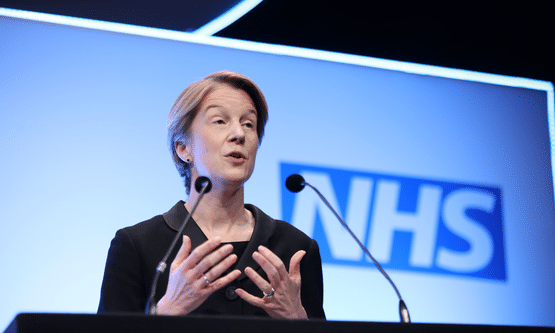NHS tech is at ‘tipping point’, says Amanda Pritchard
- 13 June 2024

NHS England chief executive, Amanda Pritchard said the NHS is at “a tipping point” when it comes to the use of technology.
Speaking at the NHS Confed Expo in Manchester on 12 June 2024, Pritchard said: “We have a unique opportunity to build on what we already have, and truly revolutionise our patient offer, giving the public greater control over their health than ever before”.
She told delegates at the conference that the NHS App was being used by 34 million people, which she said equates to more than 75% of the population and “twice the subscribers that Netflix has”.
Pritchard added that in April 2024, people viewed or changed 7.7m secondary health appointments, ordered 3.9m repeat prescriptions and accessed 1.6m online consultations through the NHS App.
“We’re also modernising systems so that support staff at over 90% of hospitals now have modern electronic patient record systems and GP practices now have cloud-based telephony systems.
“Now by rolling out the NHS federated data platform, which 43 trusts are already using, we have a credible path to being able to connect the hundreds of disparate IT systems over the next few years, putting powerful tools in the hands of clinicians”.
The NHSE chief executive added: “Some say that the NHS is stuck in an analogue past – and sure, some bits still are – but we are already building foundations that make better care possible.
“And the planning we’re doing now to deploy extra funding next year will help us put rocket boosters under that progress, getting the basic building blocks right so we can take full advantage of the data and AI revolution”.
Pritchard also said that the NHS needed to make it “easier than ever to innovate”.
“Improvement will only take you so far, sometimes really taking opportunities, particularly with technology and with data means doing things totally differently,” she said, adding that “technology enabled care” is “helping to avoid thousands of unnecessary hospital visits, and further plans are shaping up which could make London the first city in the world to offer a digital first urgent and emergency care service”.
“So as we finalise the plan for additional tech investment from April, we’ll be calling on you to come forward to test how connected systems, AI and automation could not just improve care, but transform it.
“At the NHS, we must always think at the individual level to ensure we don’t leave people behind, and the current cyber incident in south east London shows we also need to be vigilant to the global threats of an internet age.
“But the time to think big and to be radical is now, and if you do that you will have our backing,” Pritchard said.
The NHS Confed Expo, which took place on 12-13 June 2024, faced disruption from protesters who objected to the conference’s sponsorship by US data analytics giant Palantir.





2 Comments
It’s not true that over 90% of hospitals have Electronic Patient Record Systems. Some of her staff have been fooling her. Our local large hospital still uses blue crates of paperwork
Updating communications is certainly a significant benefit as are promises in increased numbers of scanners and AI. A basic improvement would be (with significant staff additions) to use the equipment we do have (e.g. scanners) 24/7 – these are costly pieces of equipment and we should use them for maximum benefit.
Comments are closed.